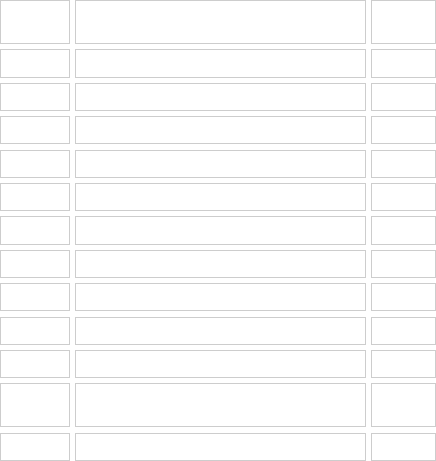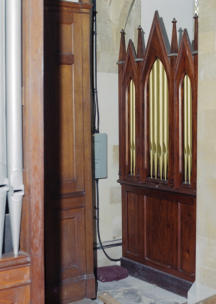
© Maggie Kilbey & Marcel Glover 2025
St Mary, Staunton (Nottinghamshire)




Barrel Organs in English Parish Churches
Improved barrel organ, 1852. Label on Barrel 1: ‘FORSTER & ANDREWS, Organ Builders, Instruments BUILT TO Suit any CLIMATE, Estimates
GIVEN FOR every description of ORGAN WORK. 29, Charlotte Street, (Late The Mechanic’s Institute), HULL. Tuning taken by Contract.’ The organ
was erected on the 14th of March 1852 for £55 including installation. Forster & Andrew’s order book describes it as ‘New Barrel Organ same
as Ponton’. It replaced an earlier barrel organ.
The organ stands at the west end. It is operated from the rear, blown by pedal independent of the barrel mechanism, therefore the barrel
can be held in position for accompanying chant without loss of wind pressure. The stained softwood Gothic case has three flats of gold
painted dummy pipes (3-5-3).
Stop list: Open Diapason 8’, Principal 4’, Mixture.
Restored in 1969 by Herbert Friskney of Sutton-on-the-Trent, before which it had not been played for some 40 years. Tunes recorded in 2001.
Three red barrels x 12 tunes in a revolving frame, corresponding with the original tunelist given in Forster & Andrews’ order book. The tune
change handle works on a notched rack: the barrel remains stationary while the keyframe is moved.
References: The Organist and Choirmaster (Jul. 1905) p.52;
Notes and Queries (18 Mar. 1922) p.209; Nottingham
Evening Post (24 Jul. 1929) p.8; Boston & Langwill (1967);
Elvin (1976); Ord-Hume (1978); NPOR, E01531.





BARREL 1
RED
Tune
Metre
1.1
LM
1.2
LM
1.3
CM
1.4
CM
1.5
CM
1.6
SM
1.7
77.77.
1.8
77.77.D
1.9
1.10
1.11
1.12




BARREL 2
RED
Tune
Metre
2.1
LM
2.2
LM
2.3
CM
2.4
CM
2.5
CM
2.6
104th
2.7
2.8
2.9
2.10
2.11
2.12
112th



BARREL 3
RED
Tune
Metre
3.1
LM
3.2
LM
3.3
CM
3.4
CM
3.5
SM
3.6
87.D
3.7
87.87.D
3.8
3.9
3.10
3.11
3.12
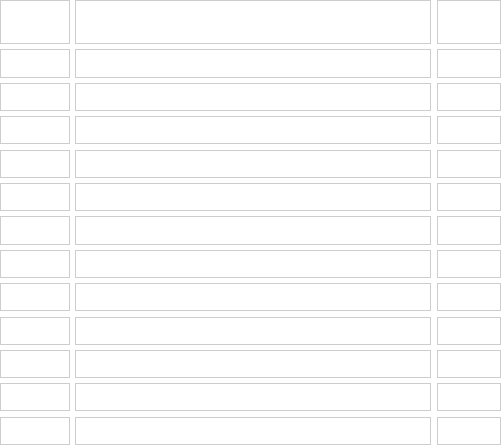

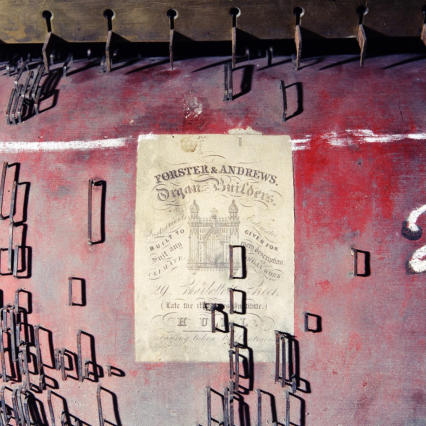

© Maggie Kilbey & Marcel Glover 2025
Barrel Organs in English Parish Churches




St Mary, Staunton (Nottinghamshire)
Improved barrel organ, 1852. Label
on Barrel 1: ‘FORSTER & ANDREWS,
Organ Builders, Instruments BUILT
TO Suit any CLIMATE, Estimates
GIVEN FOR every description of
ORGAN WORK. 29, Charlotte Street,
(Late The Mechanic’s Institute),
HULL. Tuning taken by Contract.’ The
organ was erected on the 14th of
March 1852 for £55 including
installation. Forster & Andrew’s
order book describes it as ‘New
Barrel Organ same as Ponton’. It
replaced an earlier barrel organ.
The organ stands at the west end. It is operated from the rear, blown by
pedal independent of the barrel mechanism, therefore the barrel can
be held in position for accompanying chant without loss of wind
pressure. The stained softwood Gothic case has three flats of gold
painted dummy pipes (3-5-3).
Stop list: Open Diapason 8’, Principal 4’, Mixture.
Restored in 1969 by Herbert Friskney of Sutton-on-the-Trent, before
which it had not been played for some 40 years. Tunes recorded in
2001.
Three red barrels x 12 tunes in a revolving frame, corresponding with
the original tunelist given in Forster & Andrews’ order book. The tune
change handle works on a notched rack: the barrel remains stationary
while the keyframe is moved.
References: The Organist and Choirmaster (Jul. 1905) p.52; Notes and
Queries (18 Mar. 1922) p.209; Nottingham Evening Post (24 Jul. 1929)
p.8; Boston & Langwill (1967); Elvin (1976); Ord-Hume (1978);
NPOR, E01531.



BARREL 1
RED
Tune
Metre
1.1
LM
1.2
LM
1.3
CM
1.4
CM
1.5
CM
1.6
SM
1.7
77.77.
1.8
77.77.D
1.9
1.10
1.11
1.12




BARREL 2
RED
Tune
Metre
2.1
LM
2.2
LM
2.3
CM
2.4
CM
2.5
CM
2.6
104th
2.7
2.8
2.9
2.10
2.11
2.12
112th



BARREL 3
RED
Tune
Metre
3.1
LM
3.2
LM
3.3
CM
3.4
CM
3.5
SM
3.6
87.D
3.7
87.87.D
3.8
3.9
3.10
3.11
3.12
